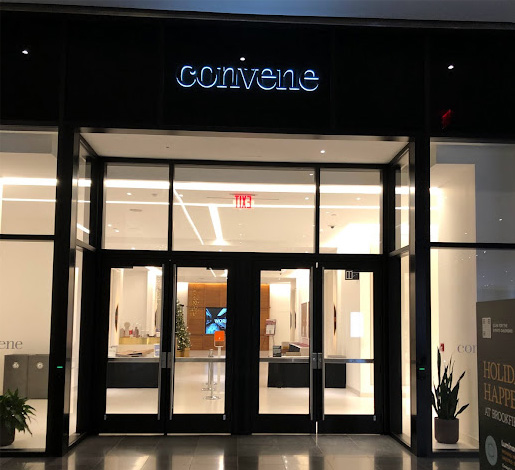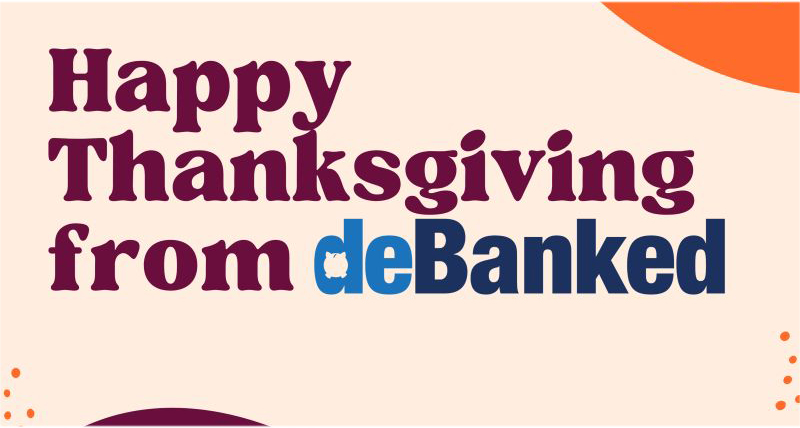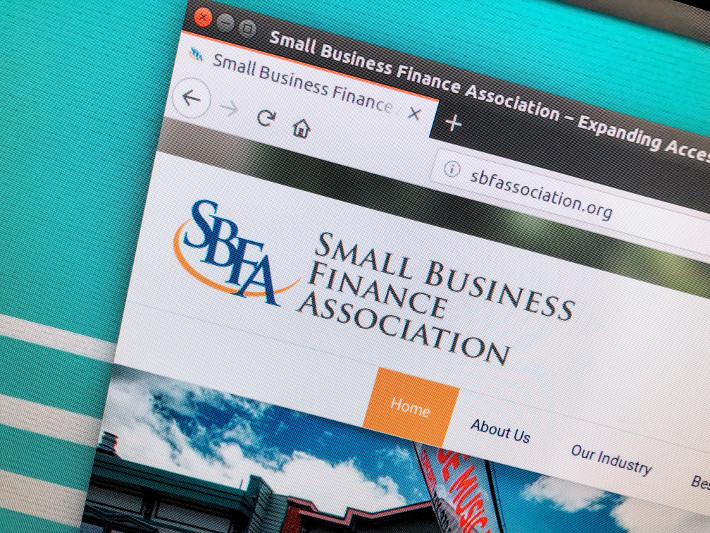Virginia Hops on the Commercial Finance APR Disclosure Bandwagon
January 14, 2022 Add Virginia to the list of states introducing initiatives to codify disclosures in commercial finance. Virginia House Bill 1027 is aimed squarely at “sales-based financing providers.”
Add Virginia to the list of states introducing initiatives to codify disclosures in commercial finance. Virginia House Bill 1027 is aimed squarely at “sales-based financing providers.”
The Virginia bill calls for an estimated APR to be disclosed on sales-based financing contracts using methods conceived in New York’s recent legislation.
As has been witnessed, however, New York’s regulators recently discovered weaknesses in their own law.
The Virginia bill is in its very early stages. It was introduced on Wednesday, January 12th by Delegate Kathy K.L. Tran (D).
New York’s Commercial Financing Disclosure Law to Undergo Further Comment and Review
January 4, 2022 Implementation of the New York Commercial Financing Disclosure law originally intended to go into effect four days ago, is now subject to another delay on top of the existing one, with no official date on when compliance will be required.
Implementation of the New York Commercial Financing Disclosure law originally intended to go into effect four days ago, is now subject to another delay on top of the existing one, with no official date on when compliance will be required.
Seeing as the New York Department of Financial Services (DFS) was still accepting comments on the proposed regulation through December 20th, DFS had originally granted covered companies a six-month reprieve on compliance. But after having reviewed the comments, DFS determined that it’s actually back to the drawing board on a regulatory proposal. Sometime “early in the new year,” DFS said, it will publish a revised proposal for further public comment.
“Given the complexity of the disclosures required by the CDFL (Commercial Financing Disclosure Law), we believe the Legislature intended that the Department first provide regulatory guidance regarding the standardized disclosures required to be provided under the CDFL,” said Serwat Farooq, a Deputy Superintendent at DFS, in a published statement. “Waiting to commence CDFL obligations until implementing regulations are in place will ensure that the disclosures are made in a consistent, standardized fashion. This will help businesses understand the terms and conditions of the various forms of credit being offered to them, the very intent of the CDFL.”
Funders Planning Mounted Response to Debt Settlement Schemers
December 30, 2021 Debt settlement companies are still using their tricky tactics, according to Efraim Kandinov of Fundfi Merchant Funding. He says a large group of funders are currently strategizing a mounted response to activity he believes is illicit.
Debt settlement companies are still using their tricky tactics, according to Efraim Kandinov of Fundfi Merchant Funding. He says a large group of funders are currently strategizing a mounted response to activity he believes is illicit.
Fundfi’s lawyers have already begun to send out Cease and Desists to the companies that have been telling his clients to breach their contracts and stop paying. He says it has become such an issue, that merchants in other parts of the country have begun ignoring his calls because of his New York area code, which they now associate with this kind of scam.
“[The merchant] said,‘I’m having all these New York numbers specifically, call me and plead with me ‘why are you doing this to yourself? Stop paying. Don’t pay these guys, pay me a fee and I’ll take care of it.’”
”This merchant was smart enough to say, ‘hey, this sounds like a scam’ and gave me the rundown.”
According to Kandinov, his company is one of the many that merchants are being told not to pay, while there are other funders who the debt settlers instruct to keep paying.
“They’re specifically targeting certain funders,” said Kandinov. “Whether they’ve been sued before by other ones, or have agreements, I have no idea. However I’m starting to realize, they’re specially targeting certain companies.”
And One of the Largest Small Business Funders is… Pipe?
December 22, 2021 It’s not a loan, Pipe says. Instead businesses can sell their future recurring revenue to investors on a trading platform for cash upfront today. Led by CEO Harry Hurst, the former founder of a rental car delivery service, Pipe has provided an astounding $1.2B worth of capital to businesses this year, putting them on pace to become one of the largest small business finance companies nationwide.
It’s not a loan, Pipe says. Instead businesses can sell their future recurring revenue to investors on a trading platform for cash upfront today. Led by CEO Harry Hurst, the former founder of a rental car delivery service, Pipe has provided an astounding $1.2B worth of capital to businesses this year, putting them on pace to become one of the largest small business finance companies nationwide.
The company claims to have made recurring revenue into an asset class while making Miami their home base, much to the joy of the city’s tech-friendly mayor.
I am so grateful for everyone participating and joining forces to make Miami a global hub for innovation.
This is just one of many! @harryhurst @m_cieplinski @pipe
Read more: https://t.co/OtxrRad0yq
— Mayor Francis Suarez (@FrancisSuarez) December 22, 2020
Pipe considers itself to be the “Nasdaq for revenue” and calls its employees “plumbers” instead of sales agents, underwriters, and engineers.
People wonder how big @pipe is.
In our first full year of trading we’ve provided access to over $1.2B in financing to companies of all shapes and sizes, from bootstrappers to public co’s – all on their terms.
Proud of our team of 76 plumbers is an understatement.
Bring on ‘22!
— Harry Hurst (@harryhurst) December 21, 2021
Pipe has already raised $300 million of equity financing in the last year from investors including Shopify, Slack, Okta, HubSpot, Next47, Marc Benioff’s TIME Ventures, Alexis Ohanian’s Seven Seven Six, Chamath Palihapitiya, MaC Ventures, Fin VC, Greenspring Associates, Counterpoint Global (Morgan Stanley) and more at a valuation of over $2 billion.
“Pipe is levelling the playing field for companies in the capital markets,” said Chamath Palihapitiya, Founder & CEO, Social Capital, to finledger. “By taking the underlying contracts that generate recurring revenue streams and making them tradable for the first time, Pipe has unlocked a multi-trillion dollar asset class, revenue.”
Broker Fair is HERE
December 5, 2021 Monday kicks off Broker Fair 2021 at Convene at Brookfield Place in lower Manhattan. The venue can be found on the 2nd floor of 225 Liberty Street. You must have a ticket and proof of vaccination to enter. The event is sold out.
Monday kicks off Broker Fair 2021 at Convene at Brookfield Place in lower Manhattan. The venue can be found on the 2nd floor of 225 Liberty Street. You must have a ticket and proof of vaccination to enter. The event is sold out.
deBanked TV will be streaming live from inside the venue where host Johny Fernandez will be talking to attendees throughout the day. You can tune in to watch live on debanked.tv starting in the morning on December 6th.
If you see the below entrance on the 2nd floor of the building on December 6th, you’re at the right place:

Broker Fair Ticket Registration To Shut Off Any Day Now
November 28, 2021 Broker Fair 2021 ticket registration will shut off days before the December 6th event. The broker-centric conference is now officially counting down to its kickoff at Convene in New York City.
Broker Fair 2021 ticket registration will shut off days before the December 6th event. The broker-centric conference is now officially counting down to its kickoff at Convene in New York City.
“This pretty much happens every time we put on a show,” said Broker Fair founder Sean Murray. “Even though this event is post-covid, we’re looking at the number of registrations so far and are very pleasantly surprised.”
Hundreds of small business finance brokers are registered to attend Broker Fair. The annual event first launched in 2018.
“I don’t know what day we’re going to disable registration yet, but based on the pace I’d say there’s no way we make it until Friday,” Murray said.
deBanked Thanksgiving Memes 2021
November 24, 2021Happy Thanksgiving. Every year since 2012, we have published original industry memes on Thanksgiving! Here’s our latest batch!








Not Just For Salespeople: Becoming a Certified Small Business Finance Professional
November 23, 2021 Its aim is to become an industry standard. The newly launched Certified Small Business Finance Professional (CSBFP) program will first become available at Broker Fair in New York City on December 6th.
Its aim is to become an industry standard. The newly launched Certified Small Business Finance Professional (CSBFP) program will first become available at Broker Fair in New York City on December 6th.
But what’s the difference between this one and others? Steve Denis, Executive Director of the Small Business Finance Association (SBFA), says that his organization’s backing of the CSBFP makes all the difference.
“We’re the largest trade group in the space without question,” Denis said, adding that the group has about 30 members, several of which are among the largest in the country.
“It’s going to be a signal that you’re doing things the right way and want to go out of your way to show that you are doing things the right way,” Denis said.
The certification will require applicants to complete a course centered on understanding products, laws governing the industry, and compliance. The certification exam will focus on testing applicants’ ability to understand key concepts and best practices.
This course is designed to be taken in person. While it will be available at Broker Fair, Denis said that they plan to partner with other events as well.
 “We’re going to focus on as many in-person training sessions as possible,” he said.
“We’re going to focus on as many in-person training sessions as possible,” he said.
And it’s not just salespeople they’re targeting. Underwriters, collectors, support staff, and more are not only all welcome to obtain their certification, but are also encouraged.
“It’s open to anyone in the industry,” Denis said. “The more the better. […] It will send a very strong message that there is a diverse group of people that want to take a certification and take it very seriously.”
In the official announcement, it was stated that it would be more than just a stamp and that certified professionals would also be provided with “a way to connect, learn and grow beyond the initial education process.”
Denis compared the CSBFP standard to CFPs (Certified Financial Planners) in the financial advisor space.
Attendees of Broker Fair 2021 can take the course at the event at no extra charge.






























